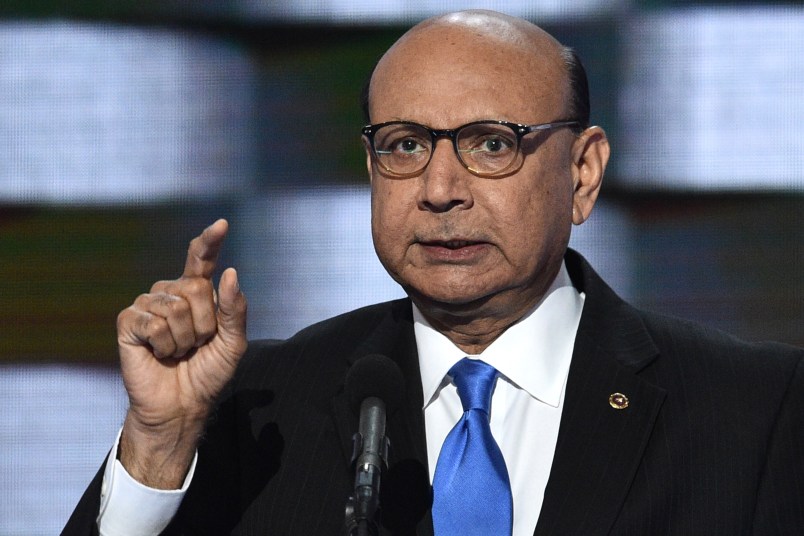There are smart terrible people and dumb terrible people. While they’re both dangerous in positions of power, the dangers they represent are significantly different. We’ve been watching the now multi-day war between Donald Trump and the Khan family. Trump has managed the amazing feat of finding himself savaging the mother of a dead American soldier who literally had never said a word against him. What is most important about understanding what is happening here, however, is not the callousness or shamelessness of Trump’s behavior. It is that it all could have been so easily avoided – not the damage to the Khan family but the damage to Trump himself. This may seem like a perverse way of looking at what has unfolded. But it’s actually the most instructive for understanding Trump’s actions, how his mind works and the sort of danger he represents.
Any political operative or communications professional, indeed anyone with some moral imagination and common sense would know how to handle this situation. Assuming you wanted to maintain the policies blocking Muslim immigration, you would simply say: “I grieve for the Khans’ loss and I very much respect their opinion and their courage. But I believe the policy I have outlined is necessary for our national security for the following reasons …”
Simple. Wouldn’t solve the original offenses that lead to their speech against Trump. But it would cut off more damaging engagement and at least suggest (whether or not it were true) that Trump is a man of empathy who believes that harsh policies are necessary.
You will never win a fight savaging the parents of a dead soldier. So it’s a fight you simply don’t engage in. A smart terrible person would get this and say something along the lines of the quote I noted above. Trump doesn’t seem terribly bright. But this isn’t about intelligence as we test it with logic puzzles. Realizing that this would be the only way to respond requires a level of self-awareness a narcissist lacks and a degree of impulse control Trump simply does not have. Empathy or any moral consciousness would get you there too. But remember, we’re focusing here on the difference between a smart terrible person and a dumb terrible person both of which lack those qualities.
When Khizr Khan and his wife Ghazala appeared at the Democratic convention they attacked and shamed Trump. He no doubt experienced it that way and the chorus of approbation the Khans received from virtually every part of the political spectrum deepened his sense of humiliation and loss of status and standing. As I’ve noted in so many contexts, the need to assert dominance is at the root of all of Trump’s actions. His whole way of understanding the world is one made up of dominators and the dominated. There’s no infinite grey middle ground, where most of us live the vast majority of our human relationships. That’s why even those who are conspicuously loyal are routinely humiliated in public. In that schema, Trump simply had no choice but to lash out, to rebalance the equation of dominance in his favor. It’s an impulse that goes beyond reason or any deliberation. That’s what left so many would-be or maybe allies flabbergasted at how or why he would have walked straight into such a buzzsaw of outrage.
For a narcissist like Trump, the rage and emotional disequilibrium of being dominated, humiliated is simply too much to bear. He must lash out. What he said in one of his tweets responding to the Khans is perhaps the most telling. “I was viciously attacked by Mr. Khan at the Democratic Convention. Am I not allowed to respond?” The use of the adverb “viciously” is a good tell that Trump is a narcissist. But setting that aside, most people would know that the answer is “No, you’re not.” Certainly you’re not allowed to respond in the sense of attacking back. Their son died serving the country. You don’t get to attack them. Someone with a moral consciousness who is capable to empathy would understand this through a moral prism. A smart terrible person would understand it as a matter of pragmatism. Smart terrible people spend time to understand human behavior, even if the moral dimension of it is invisible to them or a matter of indifference. Just as importantly, they have impulse control.
A smart terrible person can be an effective, even a good leader, if the interests of the country line up with his or her personal interests. I’m not advising it. But it’s possible. Indeed, history shows various examples of it. But a dumb terrible person is almost always dangerous. Trump’s mix of rage and insecurity are so unbridled that it is not simply that he is unable to protect others from their impact. He cannot even protect himself from the damage they create.






